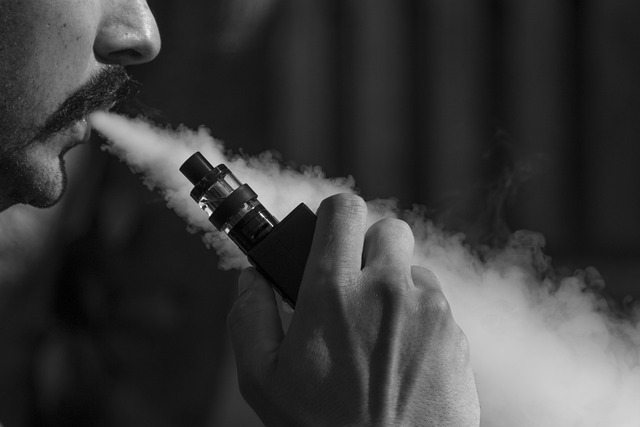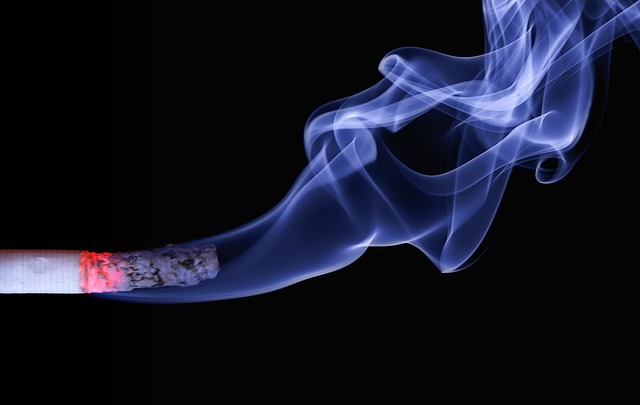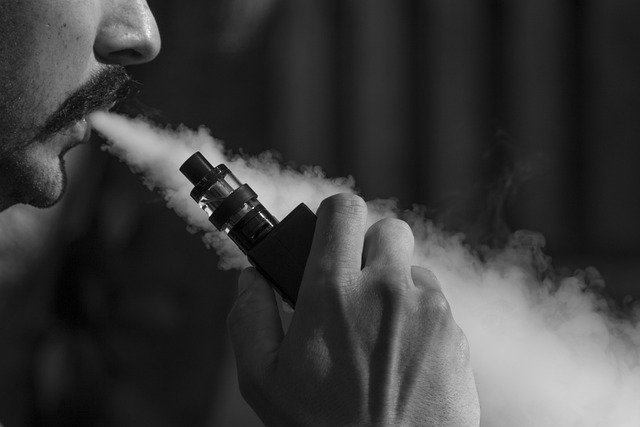Why Can’t I Vape After Wisdom Teeth? Key Points to Note
Are you a vaping enthusiast who just had their wisdom teeth removed? If so, you may have wondered why your dentist advised against vaping during the recovery period. In this article, we will delve into the key points surrounding this seemingly puzzling restriction. By exploring the effects of vaping on the healing process and the potential risks involved, we aim to provide you with a clear understanding of why it’s crucial to abstain from vaping after wisdom teeth extraction. So, let’s dive right in and uncover the reasons behind this temporary abstinence.
1. The Dental Connection: Understanding the Impact of Wisdom Tooth Extraction on Vaping
The impact of wisdom tooth extraction on vaping is a topic that has gained significant attention in recent years. Many individuals who undergo wisdom tooth extraction may wonder how it will affect their ability to vape. Here, we will delve into the dental connection and help you understand the potential implications.
Firstly, it is important to note that wisdom tooth extraction itself does not directly impact vaping. However, there are certain factors that may come into play during the healing process, which could affect your vaping experience. Here are a few key points to consider:
- Oral sensitivity: After wisdom tooth extraction, you may experience oral sensitivity, especially in the area where the extraction took place. This sensitivity can make vaping uncomfortable or even painful, as the heat and vapor may irritate the healing tissues. It is advisable to avoid vaping until your mouth has fully healed to prevent any complications.
- Blood clot formation: Following an extraction, it is crucial for a blood clot to form in the socket to promote proper healing. Vaping, especially if done forcefully, has the potential to dislodge the blood clot and lead to a condition called dry socket. Dry socket can be extremely painful and may require additional treatment, so it is best to refrain from vaping during the initial healing period.
- Smoking vs. vaping: If you are a smoker who is considering switching to vaping after wisdom tooth extraction, it is important to note that both smoking and vaping can impede the healing process. The chemicals in cigarettes and the heat from vaping devices can delay healing and increase the risk of complications. It is advisable to consult with your dentist or oral surgeon for specific guidance on when it is safe to resume smoking or vaping after the extraction.
Ultimately, while wisdom tooth extraction itself may not directly impact your ability to vape, it is crucial to prioritize your oral health and follow the guidance of your dental professional. A proper healing process is essential for a smooth recovery, and avoiding vaping during this time can prevent any potential complications.
2. Post-Extraction Healing: Why Vaping Should Be Avoided during Recovery
During the healing process after a tooth extraction, it is crucial to avoid certain activities that may hinder the recovery. One such activity is vaping, which should be strictly avoided during this time. Here’s why:
1. Increased risk of complications: Vaping involves inhaling and exhaling vapor produced by an electronic cigarette or similar device. This act of inhaling can introduce harmful substances and irritants into the mouth, which can disrupt the healing process and increase the risk of complications, such as dry socket. Dry socket is a condition where the blood clot that forms after an extraction becomes dislodged or dissolves prematurely, causing severe pain and delaying the healing process.
2. Reduced blood flow and oxygen supply: Vaping has been shown to reduce blood flow and oxygen supply to tissues. This reduction in blood flow can impair the healing process, as adequate blood circulation is crucial for delivering nutrients and oxygen necessary for tissue repair. By avoiding vaping during the recovery period, you can ensure that the extraction site receives sufficient blood flow and oxygen, promoting faster healing and minimizing the risk of complications.

3. Risks and Complications: Potential Consequences of Vaping after Wisdom Teeth Removal
Vaping has gained popularity in recent years as an alternative to smoking traditional cigarettes. However, it is important to understand the potential risks and complications associated with vaping, especially after wisdom teeth removal. Although the act of vaping itself may not directly interfere with the healing process, the chemicals and substances present in e-cigarette aerosol can have adverse effects on the delicate oral tissues.
One of the main concerns with vaping after wisdom teeth removal is the potential for dry socket. Dry socket is a painful condition that occurs when the blood clot that forms after tooth extraction becomes dislodged or dissolves prematurely. The suction action involved in vaping can disrupt the formation of the blood clot, increasing the risk of developing dry socket. Furthermore, the nicotine present in e-cigarettes can constrict blood vessels, impairing the blood supply to the surgical site and further delaying the healing process. It is crucial to avoid vaping for at least a week after wisdom teeth removal to minimize the risk of developing complications.

4. Protecting Your Oral Health: Tips for a Smooth Recovery without Vaping
When it comes to protecting your oral health, it’s important to be mindful of the habits and choices you make. While vaping has gained popularity in recent years, it’s essential to understand the potential risks it poses to your oral health. Here are some tips to ensure a smooth recovery without vaping:
Avoid vaping altogether: The best way to protect your oral health is to avoid vaping altogether. Vaping exposes your teeth and gums to harmful chemicals and toxins, which can lead to tooth decay, gum disease, and other oral health issues. By eliminating vaping from your routine, you reduce the risk of these complications.
- Stay hydrated: Drinking plenty of water is crucial for maintaining oral health and promoting a smooth recovery. Water helps flush out bacteria and food particles, preventing plaque buildup and reducing the risk of tooth decay. Additionally, staying hydrated promotes saliva production, which is essential for neutralizing acids and maintaining a healthy pH balance in your mouth.
- Practice good oral hygiene: Brushing your teeth twice a day and flossing daily are essential habits for protecting your oral health. Be sure to use a fluoride toothpaste and a soft-bristled toothbrush. Additionally, consider using an antiseptic mouthwash to further reduce bacteria in your mouth. Don’t forget to schedule regular dental check-ups and cleanings to detect any potential issues early on.
- Avoid tobacco products: While some may turn to vaping as an alternative to traditional tobacco products, it’s important to note that both can have detrimental effects on your oral health. Smoking and chewing tobacco can cause gum disease, teeth stains, bad breath, and even oral cancer. Quitting or avoiding tobacco products altogether is the best choice for maintaining a healthy mouth.

5. Patience is Key: How Long to Wait before Resuming Vaping after Wisdom Teeth Extraction
After undergoing a wisdom teeth extraction procedure, it is crucial to allow your body enough time to heal properly before resuming your vaping routine. Patience is key during this recovery period to avoid any potential complications or setbacks. Wisdom teeth extraction is a delicate oral surgery, and it is important to give your mouth the necessary time to heal and avoid any unnecessary risks.
While the exact recovery period may vary from person to person, it is generally recommended to wait at least 72 hours or three days before resuming vaping after wisdom teeth extraction. This initial waiting period is essential as it allows the blood clot, which forms in the extraction site, to properly stabilize and promote healing. Vaping too soon can potentially dislodge the blood clot, leading to a painful condition called dry socket.
- Avoid suction: Suction created when vaping can disturb the healing process and dislodge the blood clot. Refrain from any activities that create suction in your mouth, including vaping, for the first few days after the surgery.
- Minimize heat and irritation: If you decide to resume vaping, ensure that the temperature of your device is set to a lower level to avoid irritating the extraction site. Additionally, opt for flavors that are not overly harsh or acidic, as they can cause discomfort or inflammation.
- Maintain good oral hygiene: During the recovery period, it is important to continue practicing good oral hygiene. Gently brush your teeth and tongue, being cautious around the extraction site. Rinse your mouth with a saltwater solution as recommended by your dentist to keep the area clean and aid in the healing process.
Remember, every individual’s healing process is unique, and it is always best to consult with your dentist or oral surgeon for personalized advice regarding when it is safe to resume vaping after wisdom teeth extraction. By patiently allowing your mouth to heal and following these guidelines, you can avoid complications and ensure a smooth recovery.

6. Alternatives to Vaping: Exploring Safer Options for Nicotine Delivery during Recovery
When it comes to nicotine delivery during recovery, it’s important to explore alternatives to vaping that are safer for your overall health. Fortunately, there are several options available that can help you satisfy your nicotine cravings without the potential risks associated with vaping.
Nicotine patches: These are adhesive patches that you apply to your skin, delivering a steady dose of nicotine throughout the day. They are convenient and discreet, making them a popular choice for many individuals in recovery.
Nicotine gum: Chewing nicotine gum can provide a quick release of nicotine into your system. It’s a portable option that allows you to control your nicotine intake by chewing a piece whenever you feel the urge to vape.
Nicotine lozenges: Similar to nicotine gum, lozenges offer a discreet way to satisfy your nicotine cravings. They come in various flavors and dissolve slowly in your mouth, gradually releasing nicotine.
Nicotine inhalers: These inhalers work by delivering nicotine vapor directly to your lungs. They mimic the hand-to-mouth motion of vaping, making them a familiar option for those transitioning away from vaping.
Exploring these alternatives can provide you with safer options for nicotine delivery during your recovery journey. It’s essential to consult with a healthcare professional to determine the best option for you based on your specific needs and preferences.
7. Consultation and Aftercare: Seeking Professional Advice for a Successful Healing Journey
Seeking professional advice during the healing journey is crucial for a successful recovery. Consulting with experts in the field can provide valuable insights, guidance, and support to ensure that you are on the right track. Aftercare, in particular, plays a significant role in maintaining your well-being after the initial healing process. Here are some key aspects to consider when seeking professional advice and aftercare:
- Research and choose the right professional: Look for professionals who specialize in your specific condition or area of concern. Consider their qualifications, experience, and reputation within the industry. It is important to find someone you trust and feel comfortable with.
- Regular check-ins and follow-up appointments: Keeping in touch with your healthcare provider or therapist is essential to monitor your progress and address any concerns that may arise. Regular appointments can help you stay motivated and ensure that you are taking the necessary steps towards full recovery.
- Explore different treatment options: Professionals can provide you with a range of treatment options tailored to your needs. Whether it’s physical therapy, counseling, medication, or alternative therapies, they can help you make informed decisions about what will work best for you.
Remember, seeking professional advice and aftercare is not a sign of weakness, but rather a proactive step towards your healing journey. These experts are there to help you navigate the challenges, provide support, and guide you towards a successful recovery. Embrace their knowledge and expertise, and trust that you are on the right path towards a healthier future.
Frequently Asked Questions
Q: Why can’t I vape after getting my wisdom teeth removed?
A: Vaping should be avoided after wisdom teeth removal to promote proper healing and minimize potential complications.
Q: What are the key reasons for not vaping post wisdom teeth extraction?
A: There are several key reasons why vaping should be avoided after wisdom teeth removal. Firstly, the suction created while inhaling from a vape device can dislodge the blood clot that forms in the empty tooth socket, leading to a painful condition called dry socket. Additionally, the chemicals and irritants present in vaping liquids can hinder the healing process and increase the risk of infection.
Q: Is there a risk of dry socket when vaping after wisdom teeth removal?
A: Yes, there is a significant risk of developing dry socket if you vape after wisdom teeth removal. Dry socket occurs when the blood clot that forms in the socket where the tooth was removed becomes dislodged or dissolves prematurely. This can cause severe pain and delay the healing process.
Q: How do the chemicals in vaping liquids affect the healing process?
A: The chemicals present in vaping liquids can have detrimental effects on the healing process after wisdom teeth removal. These chemicals can irritate the surgical site, leading to inflammation and potentially interfering with the formation of new tissue. This can prolong the recovery period and increase the risk of complications.
Q: Can vaping increase the risk of infection after wisdom teeth extraction?
A: Yes, vaping can indeed increase the risk of infection following wisdom teeth removal. The heat and chemicals produced by vaping devices can create an environment where bacteria thrive, increasing the likelihood of infection in the surgical site. This can lead to delayed healing, discomfort, and potential complications.
Q: When is it safe to resume vaping after wisdom teeth removal?
A: It is generally recommended to refrain from vaping for at least a week or until your dentist or oral surgeon gives you the green light to resume normal activities. However, it is crucial to follow the specific instructions provided by your healthcare professional, as individual healing times may vary.
Q: Are there any alternatives to vaping during the recovery period?
A: Yes, there are several alternatives to vaping that can be considered during the recovery period. These include nicotine patches, gums, or lozenges, which allow you to satisfy your nicotine cravings without risking complications from vaping. However, it is essential to consult with your dentist or oral surgeon before using any nicotine replacement products.
Q: What other precautions should I take to ensure a smooth recovery after wisdom teeth removal?
A: Apart from avoiding vaping, there are a few other precautions you should take for a smooth recovery after wisdom teeth removal. These include following a soft food diet, maintaining excellent oral hygiene, avoiding strenuous activities, and taking any prescribed medications as directed. Additionally, attending follow-up appointments with your dentist or oral surgeon is crucial for monitoring your healing progress.
Insights and Conclusions
In conclusion, it is crucial to understand the reasons why you should avoid vaping after wisdom teeth extraction. The primary concern lies in the negative impact of the suction created during vaping, which can disrupt the healing process and potentially lead to a condition known as dry socket. Additionally, the chemicals present in e-cigarettes can further irritate the surgical site and hinder the recovery.
To recap, here are the key takeaways:
1. Suction from vaping can impede the healing process after wisdom teeth extraction.
2. Dry socket, a painful condition, can occur due to the disruption of blood clot formation.
3. The chemicals found in e-cigarettes can irritate the surgical site and delay recovery.
4. It is essential to follow your dentist’s post-operative instructions to ensure a smooth and speedy recovery.
By adhering to these guidelines and prioritizing your oral health, you can ensure a successful recovery from wisdom teeth removal and minimize potential complications. Remember, it is always best to consult with your dentist or oral surgeon for personalized advice regarding your specific situation.






